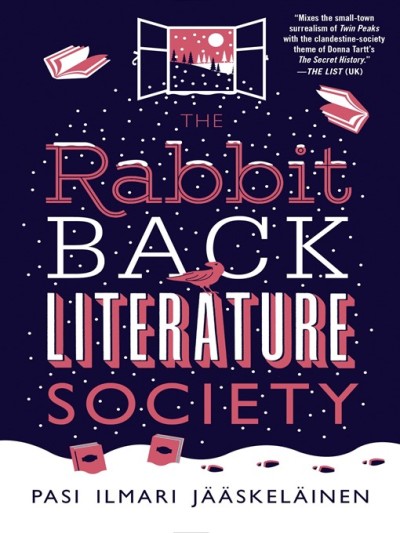 The book blurb promises "a highly contagious book virus, a literary society and a Snow Queen-like disappearing author." So, I'm intrigued! Multiple reviewers have made references to Twin Peaks in tone, and the twisty plot involving an elite author's group, secret rituals, and a mystery to solve sounds just like the kind of book to keep you up way past bed time.
The book blurb promises "a highly contagious book virus, a literary society and a Snow Queen-like disappearing author." So, I'm intrigued! Multiple reviewers have made references to Twin Peaks in tone, and the twisty plot involving an elite author's group, secret rituals, and a mystery to solve sounds just like the kind of book to keep you up way past bed time.
The Book of Strange New Things, Michel Faber
(Crown, 2014)
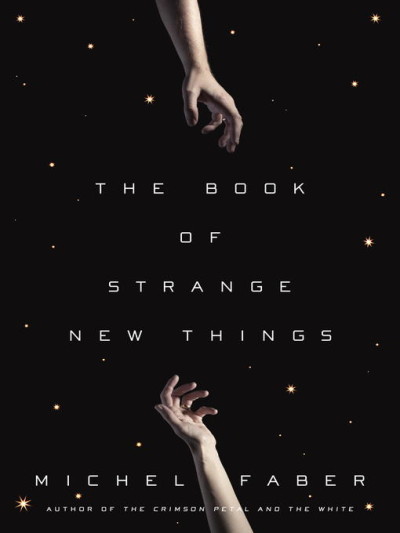 I just inhaled this intense novel about a missionary who flies to another planet, leaving behind Earth in the grips of collapsing economies and environments, and I already want to re-read it. Michel Faber—responsible for one of my favorite reads from last year, Under the Skin—has established himself as an author who can do really interesting things with language and plot pacing. He also fills his books with characters who are neither good nor bad, but rather conflicted and lost.
I just inhaled this intense novel about a missionary who flies to another planet, leaving behind Earth in the grips of collapsing economies and environments, and I already want to re-read it. Michel Faber—responsible for one of my favorite reads from last year, Under the Skin—has established himself as an author who can do really interesting things with language and plot pacing. He also fills his books with characters who are neither good nor bad, but rather conflicted and lost.
The Sleepwalker's Guide to Dancing, Mira Jacob
(Random House, 2014)
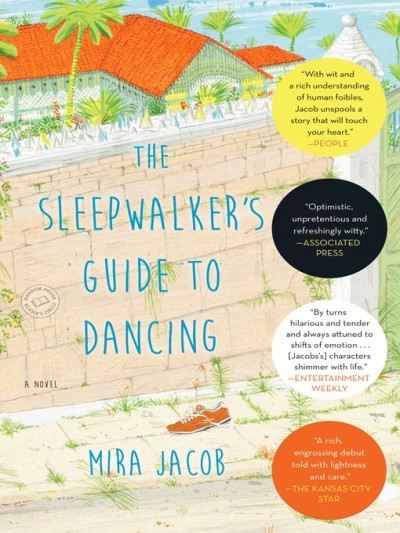 A family saga spanning several decades and continents, the AP describes Jacob's debut novel as "optimistic, unpretentious and refreshingly witty.” Photographer Amina has to travel home when her father has everyone concerned as he begins conversing with dead relatives. Confronting the challenges her family is facing, Amina also learns more about her family's past.
A family saga spanning several decades and continents, the AP describes Jacob's debut novel as "optimistic, unpretentious and refreshingly witty.” Photographer Amina has to travel home when her father has everyone concerned as he begins conversing with dead relatives. Confronting the challenges her family is facing, Amina also learns more about her family's past.
ESSAYS AND MEMOIRS
The Encyclopedia of Trouble and Spaciousness, Rebecca Solnit
(Trinity, 2014)
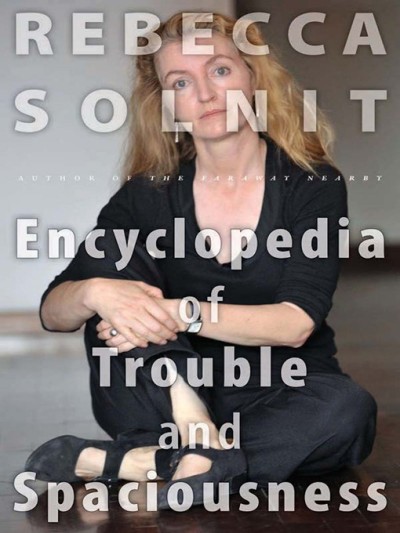 When I grow up, I want to be Rebecca Solnit. Having read multiple essays of hers and had the pleasure of hearing her speak at a showing of Leonora Carrington's paintings, I think Solnit can take pretty much any topic and spin into a lyrical, thought-provoking exploration of how it relates to the human condition. This is her most recent collection of essays and you might know her name from a popular piece titled "Men Explain Things to Me."
When I grow up, I want to be Rebecca Solnit. Having read multiple essays of hers and had the pleasure of hearing her speak at a showing of Leonora Carrington's paintings, I think Solnit can take pretty much any topic and spin into a lyrical, thought-provoking exploration of how it relates to the human condition. This is her most recent collection of essays and you might know her name from a popular piece titled "Men Explain Things to Me."
Little Failure, Gary Shteyngart
(Random House, 2014)
 This is a book that I both want to read immediately, and also not at all. As a Russian immigrant, I've got my share of stories of a Soviet childhood and coming of age in the US that friends have said I should "put in a book." Shteyngart has obviously beaten me to it, and I'm afraid that once I read his memoir, I'll find it irritatingly good. You know, how some topic just feels so familiar that you end up nitpicking another person's take on it?
This is a book that I both want to read immediately, and also not at all. As a Russian immigrant, I've got my share of stories of a Soviet childhood and coming of age in the US that friends have said I should "put in a book." Shteyngart has obviously beaten me to it, and I'm afraid that once I read his memoir, I'll find it irritatingly good. You know, how some topic just feels so familiar that you end up nitpicking another person's take on it?
Bad Feminist: Essays, Roxane Gay
(HarperCollins, 2014)
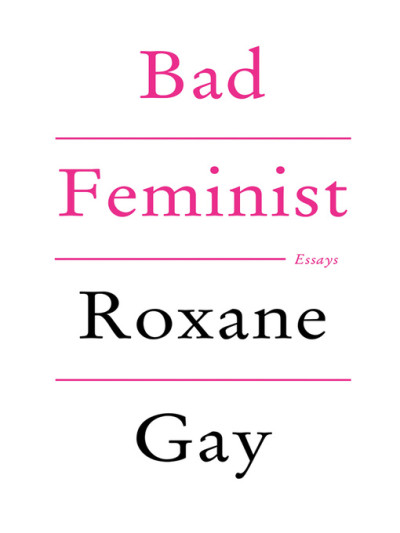 I have friends who loved this book, and I have friends who hated it. Me? I have no expectations. I just want to know whether or not Roxane Gay is as funny and provocative in long form as she is on Twitter. (I'm sure she is.) "I would rather be a bad feminist than no feminist at all," Gay writes, weighing her flaws and successes. The crux, it seems, is who says you have to be perfect?
I have friends who loved this book, and I have friends who hated it. Me? I have no expectations. I just want to know whether or not Roxane Gay is as funny and provocative in long form as she is on Twitter. (I'm sure she is.) "I would rather be a bad feminist than no feminist at all," Gay writes, weighing her flaws and successes. The crux, it seems, is who says you have to be perfect?
NON-FICTION
The Warmth of Other Suns, Isabel Wilkerson
(Knopf Doubleday, 2010)
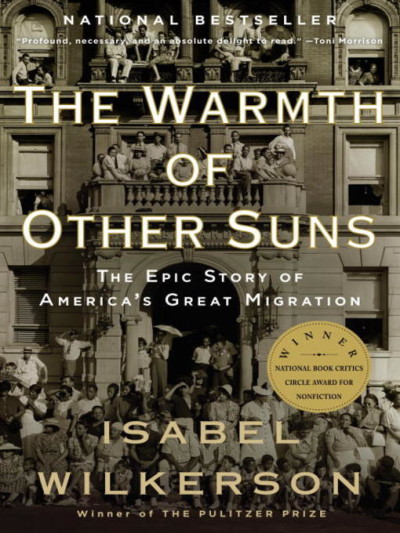 This isn't a new release but it continues to appear on lots of recommended lists. Pulitzer Prize-winner and former bureau chief of The New York Times, Wilkerson looks at a very specific aspect of American history—the internal migration of Black citizens from the South to the states north and west in the first half of the 20th century. Taking its title from a poem by Richard Wright, the book took 15 years to finish and includes historical analysis and interviews.
This isn't a new release but it continues to appear on lots of recommended lists. Pulitzer Prize-winner and former bureau chief of The New York Times, Wilkerson looks at a very specific aspect of American history—the internal migration of Black citizens from the South to the states north and west in the first half of the 20th century. Taking its title from a poem by Richard Wright, the book took 15 years to finish and includes historical analysis and interviews.
The Secret History of Wonder Woman, Jill Lepore
(Knopf Doubleday, 2014)
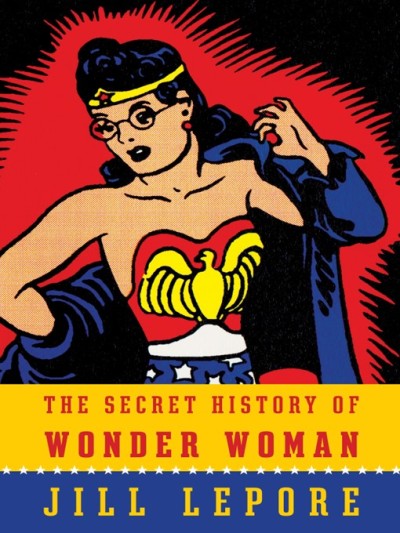 Because of the previously mentioned immigrant thing, I didn't grow up with comic books (well, not counting random issues of Asterix and the occasional political cartoon that went completely over my head). My first encounter with a superhero was Christopher Reeve as Superman. In general, I've only been reading comic books for the last few years and I have a lot of gaps to fill. A historic overview of an iconic character like Wonder Woman is definitely a requirement and Lepore's book should do nicely.
Because of the previously mentioned immigrant thing, I didn't grow up with comic books (well, not counting random issues of Asterix and the occasional political cartoon that went completely over my head). My first encounter with a superhero was Christopher Reeve as Superman. In general, I've only been reading comic books for the last few years and I have a lot of gaps to fill. A historic overview of an iconic character like Wonder Woman is definitely a requirement and Lepore's book should do nicely.
So You've Been Publicly Shamed, Jon Ronson
(Penguin, 2015)
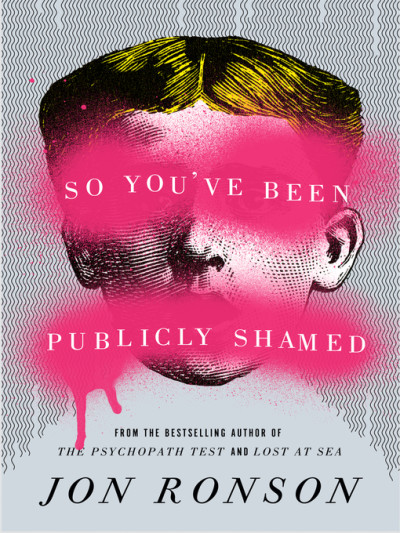 Public shaming as punishment isn't a new concept, but it has taken on a renewed power now that the court of public opinion exists virtually—but oh so prominently—on the internet. It's definitely a time when people can be more actively involved in bringing others to accountability, but Ronson's book explores whether that shaming goes too far. Whichever side you land on, this should make for some interesting reading.
Public shaming as punishment isn't a new concept, but it has taken on a renewed power now that the court of public opinion exists virtually—but oh so prominently—on the internet. It's definitely a time when people can be more actively involved in bringing others to accountability, but Ronson's book explores whether that shaming goes too far. Whichever side you land on, this should make for some interesting reading.
GOOD THINGS COME TO THOSE WHO WAIT
Briefly mentioned below are books that come recommended, but have a very long waiting list. The best part about adding books to the wait list is that, after a while, you forget you have the book on hold. When the e-mail arrives in your inbox saying that the copy is now available for check-out, it feels almost like someone just gave you a big surprise present.
The Girl on the Train, Paula Hawkins
(Riverhead Books, 2015)
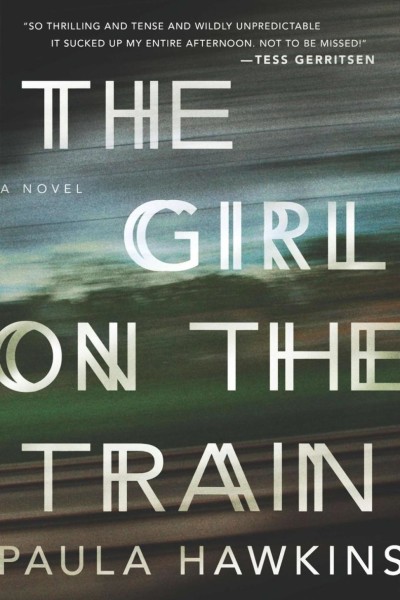 A woman named Rachel imagines a story about a couple she regularly sees on her train commute. One day, however, she sees something shocking and becomes inextricably involved in a complicated story when she contacts the police. Apparently, there are no likable characters in the book, so that should be interesting.
A woman named Rachel imagines a story about a couple she regularly sees on her train commute. One day, however, she sees something shocking and becomes inextricably involved in a complicated story when she contacts the police. Apparently, there are no likable characters in the book, so that should be interesting.
The Buried Giant, Kazuo Ishiguro
(Knopf, 2015)
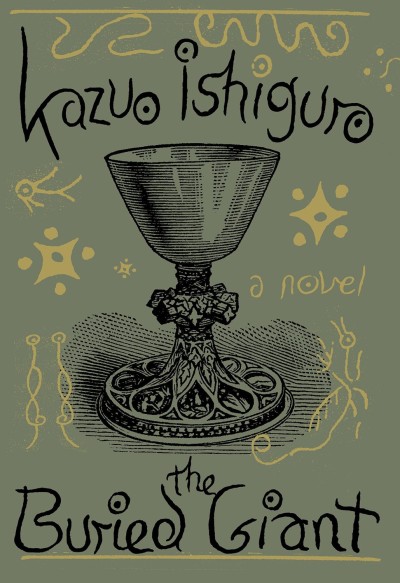
This is Ishiguro's first novel in nearly a decade, since the incredible Never Let Me Go. This one is a genre-bending story of two elderly 6th century Britons, Axl and Beatrice, setting out on a journey across England, encountering knights and memories left buried.
Yes Please, Amy Poehler
(HarperCollins, 2014)
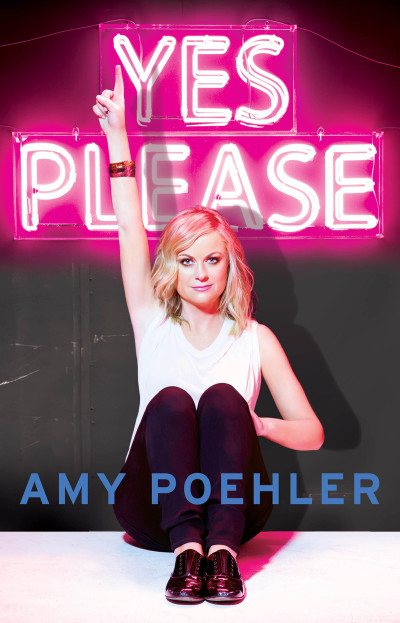










 A woman named Rachel imagines a story about a couple she regularly sees on her train commute. One day, however, she sees something shocking and becomes inextricably involved in a complicated story when she contacts the police. Apparently, there are no likable characters in the book, so that should be interesting.
A woman named Rachel imagines a story about a couple she regularly sees on her train commute. One day, however, she sees something shocking and becomes inextricably involved in a complicated story when she contacts the police. Apparently, there are no likable characters in the book, so that should be interesting.


